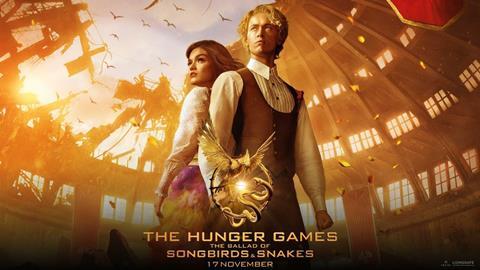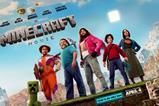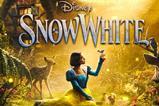Charles Merritt finds the prequel to The Hunger Games franchise provides much food for thought at a time when daily news is full of the same kind of violence

The Film: The Hunger Games: The Ballad of Songbirds & Snakes
Rating: 12A
Watch if you liked: The Hunger Games
Running time: 158 minutes
Genre: Sci-Fi, War
Overview: A young Coriolanus Snow changes the Hunger Games forever when he is handed his tribute from District 12, a feisty songstress named Lucy Gray Baird. (This is a prequel to the Hunger Games series).
What you liked:
This film is tense. It’s designed to be so. And it worked. I was hiding in my hoodie for a good proportion of the film. The Hunger Games have always been edge-of-your-seat stuff and placing them in a small, confined arena, in comparison to the films set later in the timeline, really elevated the tension.
Viola Davis is wonderful as the Head Gamemaker, Dr Volumnia Gaul, and plays her with both equal gravitas and madness creating a memorable character that you would not want to meet in real life.
Jason Schwartzman steps into the role of Lucky Flickerman (played by Stanley Tucci in the original series of films), and does so in a way that feels authentic to Tucci’s performance as well as portraying the character as younger and slightly less sure of himself.
Spoilers if you haven’t seen the other Hunger Games films but Coriolanus Snow eventually becomes president and the ‘big bad’ of the films. Journeying with the character as a young man, poor and hungry to regain his status and wealth, gives you more insight into his character, and possibly even sympathy. Whether or not that remains at the end of the film is debatable, but I always love making characters more three dimensional and so this is a big plus of the film for me.
All in all, it made me want to rewatch the other films – luckily I’ve just bought them all on Blu-ray so I know what I’m next doing on a rainy day…
What you didn’t like:
I had read the book over a year ago, literally finishing it a couple of minutes before it was announced this film was on its way.
As with any book to screen adaptation, a lot gets left out. Although the broad strokes are there and the plot isn’t vastly different from the novel, the movie did feel a little rushed in my opinion. I kind of wish there was more or maybe that they had gone down the route of making it a TV show just to really draw out the relationship between Snow and Baird more.
Although I did really enjoy the music sections, there was perhaps either a little too much of it or the songs sounded to similar in places which made it feel as such.
Thoughts for parents:
The Hunger Games are violent! It’s the point of them. So don’t let little ones watch. As I said, I found it a tough watch in places - although I am a bit of a coward so take that with a pinch of salt.
The opening scene immediately made my heart sink. We see the war that resulted in the Hunger Games creation and a young Snow witnessing the brutalities and desperation that war drives people too. I’m hyper-conscious that these scenes feel a little too close to home right now. The footage isn’t far off what we are seeing in the news. War is a challenging topic of conversation, for adults, let alone for young people.
War is complex – always has been, always will be. Perhaps what makes it more complex for us as Christians, is that the Old Testament is filled with them. Deep down, we know that war is bad – it certainly didn’t belong in the Garden of Eden – and yet we also know that injustice is equally bad. How do we hold the two in balance? Is there ever such a thing as a ‘just war’?
What is interesting is that this film in the Hunger Games series is from the viewpoint of the victors, whereas the others are from the viewpoint of the oppressed. Snow’s father was killed by rebels from District 12, how does that affect the way he feels about being paired with Lucy Gray? How does he treat her – with respect or as a prize?
The Hunger Games came about as a way of reminding the Districts and the Capital of the brutality of war but it’s hard not to view it as continuous revenge and punishment for the Districts. Why are revenge and unforgiveness unhealthy? What are the consequences of not letting go of those who wrong us?











































